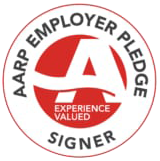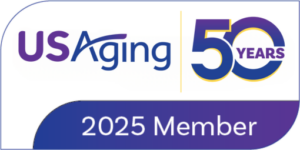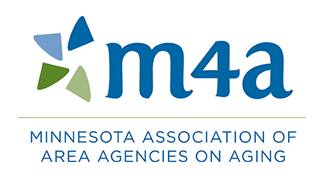2019 Annual Report: Supporting Caregivers — Interfaith Caregivers and Wellspring Faith in Action
In November 2000, Congress reauthorized the Older Americans Act and created Title III-E, the National Family Caregiver Support Program (NFCSP). This Title was designed to help family and informal caregivers care for older adults in their homes for as long as possible. By creating the NFCSP, Congress explicitly recognized the important role that family caregivers occupy in our nation’s long-term services and supports system.
In 2003 when the NFCSP regulations were in place, and funds became available, the Region Nine Area Agency on Aging (one of the predecessors to MNRAAA) awarded its first Title III-E grant awards. Among the initial recipients were two Faith-in-Action programs, Interfaith Caregivers and Wellspring, serving Faribault and Watonwan Counties respectively. Seventeen years later, both programs continue to support caregivers through Title III-E grant awards from MNRAAA.
Over the years, these programs have provided respite care, caregiver coaching/consulting, support groups and education and training specifically designed to achieve reduced caregiver burden; increased caregiver skill competency and confidence; extended time care can be provided at home; and increased caregiver access to support services. While maintaining their commitment to these basic goals, Interfaith Caregivers and Wellspring have adapted their caregiver services to address changes in demographics and the introduction of new and innovative models of support.
Interfaith Caregivers has implemented a Friendship Café (a safe and comfortable space where caregivers and their loved ones living with memory loss can socialize, receive support and enjoy the company of those with similar things in common) and is placing a greater emphasis on outreach to working caregivers. Wellspring is responding to the needs of Hispanic caregivers in Watonwan County by implementing a Spanish-language support and education group through a partnership with Our Golden Age meetings.
Both Interfaith Caregivers and Wellspring have been successful in their provision of services to support caregivers. Caregivers who responded to satisfaction surveys indicated the services met or exceeded their expectations, helped them to cope better, increased their skills or ability to provide care, and helped them to provide care longer. Survey comments indicated that the caregiver services are very much appreciated and are very valuable to the community. An on-going challenge for both programs is how to engage caregivers earlier. Kim Askeland, Wellspring program coordinator, summarized this challenge best, “Caregiving is a long journey most of us will take at some point in our lives. We don’t need to take this journey alone.” She continued by saying, “There are many resources available to caregivers; they just need to be willing to reach out for and accept help.”
To learn more about caregiver services:
- In Faribault County, contact Interfaith Caregivers at info@interfaithcaregivers.net or 507-526-4684.
- In Watonwan County, contact wellspringfia@co.watonwan.mn.us or 507-375-1276.
For people in all other counties in Southwestern Minnesota, or if your organization is interested in providing caregiver services or applying for a grant award, contact Rhonda Hiller Fjeldberg at rfjeldberg@mnraaa.org or 507-387-1256 x. 105.




